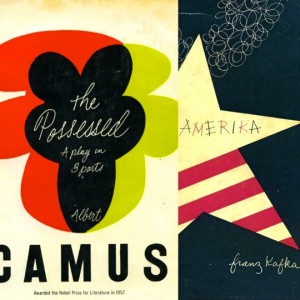Tweet? Is there an echo? Is there an end to this maze? Or just steps in darkness that, soon or late, will fade?
Home > Monthly Archives: March 2014
Why worry? I know what you’ve been thinking. Just think about it this way: Every day Just find one beautiful Thing to say.
Writing has not died; I don’t think it ever will. Yet, like any living thing, it will adapt. The ecology of the written word has changed dramatically. The rise of social media has changed the way that people think, interact, and express themselves. We generate huge volumes of written content every day. We trade jokes, opinions, and anecdotes. We publish blogs, articles, photos, videos and music. The expressive force and entertainment value of these media are immense. Add to this the proliferation of Internet programming, some of it high quality, which provides a steady stream of comedy, drama, and romance. Poetry and short-form prose can seem like mice under the feet of superfauna. Yet I think poetry and prose can remain relevant by adapting to this new environment. JimPerry140 is an exploration of poetry and prose adapted specifically to the ecology of the Internet. “140” attempts Twitter-ready writing of 140 characters or less. “200” is a blog of prose and poems of 200 words or less. “1024” pairs words and images. All content is pushed out on social media; this site is a repository. All writing found here is mine alone. All quotations are fictitious.
Will there be a day When your chin will leave Its perpetual palm? When every question You have asked Will have its answer? Those days lie in fiction_ But no novel You have read. Life ends in half rhyme, In a doorknob touched And not opened, In a comma Whose next clause is unwritten By art, Or else by the artist, Like me, Who could not find his answer.

The lamp motif of this website, designed by my friend Melissa Armstrong, was inspired by mid-century Modernism. In the 1940’s and 50’s designers like Alvin Lustig and Paul Rand created book jackets for works by authors ranging from Henry Miller to Gertrude Stein. The designs were simple and bold, ideal for paperbacks and reprints. These were books to be dog-eared—to be passed around, beat up, contended with. Passages were underlined. They fell out of bed. Today, they are found at bookstalls and garage sales, musty pages recalling a thirst for obscurity and a thrill of the illicit that has lost its potency. Like all things past, we cannot recreate the time or place, but only pay them homage—a nod (or a bow) to three colors and a silkscreen.
Click here. Lower. Left clavicle_ OK, now the disclaimer: 99% post-consumer material. Can’t be washed with whites. I often change my mind.
Say you won’t take them, well_ Two of them are right now somewhere on this Earth, Laying nose to nose, toe to toe. Scheming.
New Haven boasts the world’s smartest vagrants. There was one, old gopher all clad in leather, Lecturing at the coffee shop on the green. Said the longbowmen of England could outdistance cannon-shot, and the undergrads had no cause to doubt him. I wondered then on the value of education_ What they were learning there would carry them no farther than the threshold. The rest they would forget in time. But Yale! Now, there was something! That name would adorn them forever and be their pass key to boardrooms and law schools and legislatures… Did they know then? Did they? Did the hobo playing professor? What their parents knew when they endowed them with these resumes_ The great hidden principle of meritocracy_ That caveat that no high school guidance counselor seems to know or at least dares not mention_ That brilliance without status is nothing at all. And status without brilliance will always, Always, be good enough.
At the bottom of the well, No words will be my rope, Nor will I think myself To daylight.
